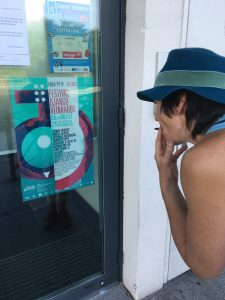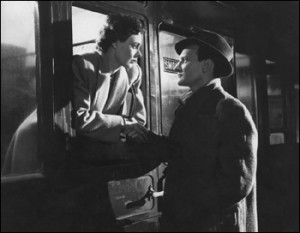About a month ago I got back from heaven. I’d done something I’d promised my self I would do for at least ten years and the thing I was afraid of didn’t happen. It was so, so much better than I could even imagine. And for once, the best things in life were free.

Every year for the past thirty-odd years, jazz manouche fans and musicians make thier way quietly and un-announced to the place where Robert Louis Stevenson, Django Reinhardt and Monet once lived. At different times of course , but the three of them had that in common. Must be funny, Abba told us, in a rich man’s world but Django was never that rich. He was born in 1910. He died in 1952. He came within a whisker of dying several times before that. You can find his history on line but I found him years before the internet even existed, thanks to British Rail.
While Jimmy Saville was feeling-up crippled patients in Stoke Mandeville and leering ‘ow’s about that then, guys and gals?’ an ad agency came up with a better idea than fronting a celebrity pervert: just show some pictures of a train rolling along and play the most complicated, most relaxing, happiest guitar music ever written or played.
And he still spoils everything. He spoils learning and playing my beautiful Hofner Verithin guitar, (the one that makes girls actually stroke the thing) not just because he didn’t much like electric guitars but because even though he only had two working fingers on his left hand he played approximately four zillion times than I’ll ever play. You want to talk about guitar heroes like Clapton or Page? Please do while I die laughing. .Listen to Django Reinhardt play and you can’t switch Radio 1 on for a month or more. Ther’e no moronic repitition. No children’s skipping rhymes masquerading as popular culture. No whiny nonsense about how haters gonna hate but baby you save me, or as they say in Scotland, any a that shite. There aren’t even any words in almost all his songs apart from Nagasaki where as is well-known, the fellows chew tobaccy and the women, well the women wiggy-waggy woo. Until they got atomised, obviously, but the song pre-dates the hiatus.
I went to Fontaineblue with a friend and learned the thing about the Django Reinhardt festival the hard way. It’s not at Fontainebleu. I’d bought tickets for all four days. I won’t be doing that again. Not just because most of the acts, certainly the ones the guests in the corporate hospitality tents had come to hear and be schmoozed over were nothing, absolutely nothing to do with his music, but more because the real festival is free.
We got the Eurostar to Paris then a commuter to the town. We got an AirBnB that we wouldn’t have looked at twice in England. We bought fresh croissants for breakfast and spoke O-Level French and didn’t, for once, buy espadrilles. Luckily, because we did what Django did; we hired bicycles one day and walked the next, 8km past the railway station at Avon, along the banks of the Seine to Soissons.
If you’ve got a thing about stateless refugees, or gypsies, look away now. Django Reinhardt was one. So was his wife. So are most, if not all, the real musicians who pitched-up in the camp on the north bank of the river; so were their ancestors who were put, as Django was going to be, into more sinister camps in the war. These were beautiful, handsome, proud, wistful, quiet people a million times removed from the travellers with dogs on a bit of string shambling around the west country. And they played. They played double bass, violin, melodica and guitar all without sheet music, for hours at the camp and in the village, free. For the joy of it. A whole day’s fabulous music was ours for the price of coffee and pastis and marguez, salad and frites – a bill for all of that music and food for the better part of the day for less than 2 Euros.
In the evening we wandered back to the paid-for festival to hear big names hamming-up what sounded like the incidental music from ancient episodes of Starsky and Hutch. We felt the same then as I feel now, as I’ve always felt Django Reinhardt’s own unique music. There is nothing like it. There never will be again.


